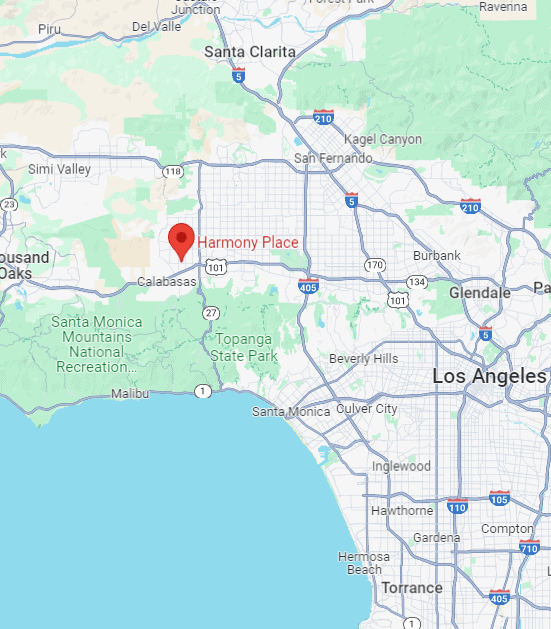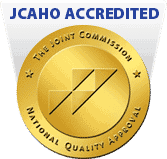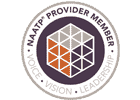Drug & Alcohol Rehab Admissions Process in Los Angeles, CA
Harmony Place Treatment Center, located in Los Angeles, California, is a specialized center dedicated to guiding individuals through the challenging journey of the drug rehab and alcohol rehab process. Our holistic approach to rehab encompasses physical, mental, and emotional well-being, offering personalized programs designed to meet everyone’s unique needs.
Harmony Place can help you navigate the California addiction intake and rehab admissions process. Our compassionate and experienced admissions team ensures a supportive environment, from the initial rehab intake interview to treatment program enrollment. We believe in empowering individuals to take control of their recovery journey, providing a transformative and nurturing space for those committed to overcoming addiction. Harmony Place Drug and Alcohol Treatment Center can help you through the rehab admissions process and help you on your path to lasting recovery and a fulfilling, addiction-free life. Call us at (855) 652-9048 to start the rehab admissions process today.
We Will Check Your Insurance
Confidential Insurance Verification Check
Thank you for your interest in Harmony Place! When looking for quality treatment, price should be your last concern – the team at Harmony Place has invested over a decade in working with insurance providers to obtain coverage for residential treatment. We accept most PPO insurance plans and some HMO’s and EPO’s.
If you’d like to know if your insurance can cover rehab treatment please call us at (855) 652-9048 or use the secure and confidential insurance verification form below. An insurance specialist from Harmony Place will confidentially verify your insurance coverage and contact you within 24 hours to review your coverage. (Required fields are marked with an asterisk.)
Regardless of your insurance coverage, Harmony Place rehab offers additional payment plans and options – give us a call today to learn more about your options. Get started by filling out the following form, and thank you for your interest in picking Harmony Place to help you start your recovery.
What Is a Drug and Alcohol Treatment Facility?
A drug and alcohol treatment center, or facility, is a specialized location designed to help individuals overcome substance abuse disorders. These facilities provide comprehensive and personalized care to meet the physical and mental needs of addiction. Through a combination of therapeutic modalities, counseling, and support services, these facilities aim to guide individuals toward lasting recovery.
These treatment facilities often offer a range of services to treat alcoholism and substance use disorders. Medical detoxification, or the alcohol rehab detox process, helps manage withdrawal symptoms in a medically supervised environment. Medically supervised detox helps ensure a safe transition into sobriety. Therapy sessions, both individual and group, play a key role in treating the underlying causes of addiction and helping patients develop coping mechanisms for long-term recovery. The goal of a drug and alcohol treatment facility is to provide a supportive environment where patients can take their journey toward a life free from substance dependence.
If you need a drug and alcohol treatment facility, you can reach out to us at Harmony Place Rehab Center. Our team is ready to assist you in verifying your insurance coverage, whether you have coverage through Anthem Blue Cross drug rehab, Cigna drug rehab, or Aetna coverage for substance abuse insurance. For details on how Harmony Place can support your journey to recovery, you can contact us online or at (855) 652-9048.
What Does Addiction Rehab Admissions and Intake Mean?
Addiction rehab admissions and intake refers to the initial rehab assessment process individuals undergo when entering a rehabilitation program to address substance abuse issues. The admissions phase involves formalizing treatment center admission, where individuals complete admissions forms for rehab and verify their insurance coverage and out-of-pocket rehab costs.
The rehab admissions step ensures a smooth transition into the rehab environment, setting the foundation for a structured and supportive journey toward recovery. The rehab intake procedure, on the other hand, delves deeper into understanding the individual’s unique needs and challenges related to addiction. During intake, a comprehensive rehab evaluation process is conducted. This assessment covers medical history, mental health, and the severity of substance use. This information helps treatment professionals create a personalized plan tailored to the individual’s specific circumstances. The goal of addiction rehab admissions and rehabilitation facility intake is to gather essential information, establish a therapeutic relationship, and design a customized treatment plan that treats the causes of addiction for a more effective and sustainable recovery.
What Is the Inpatient Treatment Admissions and Intake Process?
The inpatient treatment center admissions and intake process is a crucial initial phase for individuals seeking intensive inpatient care for substance abuse issues. This comprehensive process ensures a thorough understanding of the individual’s needs, laying the groundwork for a tailored and effective inpatient treatment plan.
Initial Assessment
The journey begins with an initial rehab admission assessment, where individuals provide essential information about their medical history, substance abuse history, and any co-occurring mental health conditions. This information is vital in determining the proper level of care and developing a personalized addiction treatment strategy.
Medical Examination and Detoxification
Sometimes, a medical examination assesses physical health and identifies immediate medical concerns. If necessary, a detoxification process may be initiated to manage withdrawal symptoms in a medically supervised environment.
Treatment Planning
Based on the assessment, treatment professionals collaborate with the individual to create a comprehensive and individualized treatment plan. This plan outlines specific goals, therapeutic approaches, and the duration of the inpatient stay.
Orientation to Facility and Rules
Individuals are typically given an orientation to the treatment facility, including an overview of the rules and expectations during their stay. This helps create a structured and supportive environment for the recovery journey.
The inpatient rehab admission procedures and intake process prioritizes a holistic understanding of the individual’s needs, fostering a therapeutic relationship between the individual and the treatment team. This thorough approach aims to treat not only the symptoms of addiction but also the factors contributing to substance abuse, promoting a more sustained and successful recovery.
If you or someone you know needs to be admitted for residential treatment, contact a rehab admission coordinator at Harmony Place Addiction Recovery Center. We can help you get the admission paperwork for rehab started and discuss the rehab admission timeline. For help initiating the drug rehab admissions process or alcohol rehab admissions process, you can call us at (855) 652-9048 today.
The Harmony Place Admissions & Intake Process
At Harmony Place, we always want you to feel comfortable and secure with our processes and procedures. Here’s how we will get you started on the path to your sober future, and how you will eventually progress to life after treatment.
Our intake planning and admissions process will ensure your drug or alcohol addiction treatment program is the right fit for you. We work with you, your doctor, your family and anyone else who has been involved in your decision to enter into addiction rehab. Together, we will determine which plan of action is the best for you and your specific needs. We will carefully gather information and work closely with your insurance company, as well.
Our admissions and treatment planning services include:
-
An initial consultation along with a comprehensive assessment
-
A professional, detailed diagnostic with in-depth treatment planning
-
A streamlined, custom intake process
-
Financial planning, with insurance coverage coordination
We will work with you and your family on every detail to make certain that you fully understand your chosen treatment program, what to expect, and the next steps.


Drug and Alcohol Rehab Centers in California Near Me
The path to addiction recovery from drug and alcohol use is a transformative journey, and our state-of-the-art rehab centers in California are here to guide you every step of the way. At our facilities, we offer comprehensive programs tailored to address the unique needs of everyone, providing a supportive environment for addiction treatment, healing, and growth.
If you are considering taking the first step toward recovery, we are currently accepting new patients at Harmony Place Drug and Alcohol Treatment Center, and we encourage you to reach out. Whether you prefer to call us directly or fill out a form online, our dedicated team is ready to assist you in initiating your recovery journey. Looking for Harmony Place photos and reviews? Visit our website today!
To start your recovery with us, contact us at (855) 652-9048 or fill out the admissions form on our website. Our expert rehab team will help you navigate the admissions process and customize a treatment plan to suit your needs. Our rehab center is conveniently located in Woodland Hills, California, and provides a serene and therapeutic setting for your healing and transformation.
Harmony Place – Woodland Hills, CA
23041 Hatteras St.
Woodland Hills, CA 91367
How Do You Get Admitted into Harmony Place Treatment Center?
Admission into Harmony Place Treatment Center involves a straightforward process to guide individuals toward comprehensive recovery. The first step is contacting our dedicated admissions team online or at (855) 652-9048. During this initial contact, you’ll discuss your situation, inquire about available rehab programs, and ask any questions you may have about the treatment process.
Following the initial contact, our admissions team will conduct an assessment and rehab admission criteria evaluation. This process allows the rehab team to understand your specific needs better, including the nature and severity of your substance use, medical history, and any co-occurring mental health conditions, before admitting into rehab. This assessment is crucial in designing a personalized treatment plan to meet your unique addiction circumstances. Once the rehab intake documentation is complete, our rehab admissions team will guide you through the necessary rehab admissions paperwork and rehab admission checklist to formalize your admission, ensuring a smooth transition into the supportive and therapeutic environment of Harmony Place Treatment Center.
At Harmony Place Addiction Recovery Center, we aim to make the admissions process as seamless as possible, providing individuals with the resources and guidance they need to embark on their journey toward lasting recovery.
What Is the Addiction Assessment, Screening, and Evaluation Process?
The rehab assessment, screening, and evaluation process are integral components of understanding and addressing an individual’s substance use disorder. This comprehensive process is designed to gather information, identify underlying factors contributing to addiction, and tailor a personalized treatment plan for effective recovery.
Initial Assessment
The first step in the rehab admission guidelines process typically starts with an initial assessment. This assessment is where individuals provide details about their substance use, medical history, and any co-occurring mental health conditions. This information helps treatment professionals gain insights into the individual’s unique situation, forming the basis for further evaluation.
Screening Tools
Screening tools may be employed to assess the severity of substance use and identify potential risk factors. These tools assist in determining the appropriate level of care and aid in developing a targeted treatment approach.
Comprehensive Evaluation
A more in-depth evaluation delves into various aspects of an individual’s life, including social, familial, and occupational factors. This comprehensive assessment helps identify triggers, stressors, and other elements that contribute to alcoholism or substance use disorder.
Mental Health Evaluation
As substance abuse often coexists with mental health issues, a thorough mental health evaluation is conducted. This involves assessing underlying mental health conditions that may be interconnected with addiction, allowing for a more holistic approach to treatment.
The addiction assessment, screening, and evaluation process serve as the foundation for tailoring the addiction treatment plan to the individual’s specific needs in the alcohol and drug rehab process. By understanding the needs of each person, treatment professionals can design interventions that address the root causes of addiction, ensuring a more effective and sustained recovery. This person-centered approach aims to empower individuals on their journey to overcome substance use disorders and achieve lasting well-being.
At Harmony Place, we strive to streamline the admissions process, offering individuals the support and resources to initiate a transformative journey toward enduring recovery. Call us at (855) 652-9048 to start your rehab journey today.
Will My Health Insurance Cover Rehab the Entire Rehabilitation Process?

While health insurance often covers rehabilitation, the extent of insurance coverage is different for everyone and depends on the insurance plan. It’s crucial for individuals to review their policies to understand their rehab coverage options. Coverage levels may be influenced by factors such as the type of treatment, the duration of the program, and the services included.
At Harmony Place, we understand the importance of navigating the complexities of insurance coverage and rehab admission requirements. Our team is here to assist you in verifying your insurance coverage levels and providing clarity on how your plan applies to the rehabilitation process. By reaching out to us, we can review the admission criteria for rehab, and you can take the first step towards understanding your insurance benefits and gaining the necessary insights to make informed decisions about your path to recovery.
How Much Does the Entire Rehab Process Cost in California?
The cost of the entire rehab process in California can vary based on the treatment type, program duration, and the amenities the facility offers. On average, intensive outpatient programs may range from $5,000 to $10,000, while residential treatment programs can have a broader range, typically starting from $10,000 and potentially exceeding $30,000 for more comprehensive and specialized services.
It’s important to note that these are general rehab cost estimates, and the actual cost will be factored in based on the details of the treatment plan and facility. Additionally, health insurance coverage may significantly offset these costs. At Harmony Place, we encourage individuals to contact us for a personalized assessment of their needs and to estimate the associated costs accurately.
Drug and Alcohol Addiction Rehab Process and Schedule
The rehabilitation process for drug and alcohol abuse typically involves several common steps, although it’s important to note that each person’s journey is unique, and treatment plans are personalized accordingly. The process often begins with an initial assessment to understand the individual’s needs, followed by detoxification if required.
Once stabilized, individuals engage in various therapeutic interventions, such as individual and group counseling, psychoeducation, and holistic approaches. Throughout the process, ongoing evaluation ensures that the treatment plan adapts to the individual’s progress and evolving needs.
Common Daily Rehab Schedule
While daily schedules can vary based on the type of program (partial hospitalization program – PHP, intensive outpatient program – IOP), the presence of co-occurring disorders, and individual preferences, a generic schedule might include structured activities such as morning meditation or mindfulness sessions, individual counseling, group therapy sessions, recreational activities, and educational workshops.
Mealtimes and periods for relaxation are also incorporated to foster a balanced and supportive environment. The goal is to provide a structured routine that promotes healing, addresses underlying issues, and gives patients the tools necessary for sustained sobriety and recovery.
At Harmony Place, our commitment is to tailor rehab schedules to meet each person’s unique needs, recognizing the diversity of experiences within the journey to recovery. To start your rehab journey or get answer to your questions such as, “What is ComPsych insurance?”, contact us online or call (855) 652-9048. Our team of compassionate staff members are here to help you as you begin your journey towards sobriety.

What Should I Bring?
Here is a list of personal items we recommend you bring with you for your stay at Harmony Place in Woodland Hills, CA. If you have any questions about any other items, just ask and we will work to accommodate your needs.
Heres what you should bring:
-
Enough comfortable wash-and-wear clothing for 5 to 7 days
-
Exercise clothing
-
Comfortable shoes: you may want to include sandal-type shoes for summer or warm slippers for winter
-
Appropriate sleepwear
-
Sweaters/jackets for fall-spring or light jacket/sweatshirt for summer
-
Summer wear: walking shorts, T-shirts, hat, sunglasses, sunscreen SPF 15 or higher
-
Toiletries: toothbrush, toothpaste, hair products, deodorant, hair dryer, body wash, lotion, shaving supplies (no products containing alcohol are allowed, such as mouthwash)
-
Prescribed medications if applicable (and a credit card or cash for co-pays/prescriptions)
-
Drivers license and insurance card AND prescription card if different from medical insurance card
-
If you smoke, you can bring enough cigarettes for 30 days
-
Bring any hobby items (knitting, sketchbooks, etc.)
Call Us 24/7: (855) 652-9048
Harmony Place: Discharge Process
Our discharge planning and aftercare services are invaluable to clients ongoing sobriety. Recovery requires a continuum of care, beginning with residential care and progressing into sober living and outpatient services.
Discharge planning begins soon after your arrival at Harmony Place. When you are ready to be discharged from our drug and alcohol addiction treatment programs, you will already have an array of support services in place and ready to use.
Your primary team and our discharge specialist will coordinate your discharge planning and aftercare services. Discharge services often integrate:
-
Prescheduled first appointment with new treatment team or physician
-
Sober living housing
-
Seamless transfers into the Intensive Outpatient Program (IOP)
-
Introduction to 12-step and other social support groups
-
Connection to primary care physician
Well stay in contact with you on a pre-scheduled basis after discharge, in order to ensure that your aftercare plan is working and to check in on you and your family.
How to Prepare for Admissions
Preparing for rehab admissions helps make the transition into treatment smoother and more effective. Start by gathering important personal information, such as medical history, current medications, previous treatment records, and any mental health diagnoses. Have your insurance details ready, including policy numbers and coverage information, so the admissions team can quickly verify benefits. Before calling, make a list of questions about the program, including treatment approaches, daily schedules, accommodations, and any gender-specific or co-ed considerations. Mentally and emotionally, set realistic expectations for the program and consider your personal goals for recovery. Discussing the decision with trusted family members or friends can provide additional support. Pack appropriate clothing, personal care items, and any comfort items allowed by the facility to make the initial days more manageable. Finally, choose a quiet, private space for the call and be ready to share openly and honestly with admissions staff, as this information guides the creation of a personalized treatment plan tailored to your unique needs.
Questions to Ask During the Admissions Process
Asking the right questions during admissions helps ensure that the rehab program aligns with your needs and recovery goals. Start by asking about the types of treatment offered, including therapies, counseling options, and holistic or alternative approaches. It is also important to understand the daily schedule and structure of the program, including group and individual therapy sessions, recreational activities, and aftercare planning.
You should inquire about staff qualifications and experience, including the credentials of therapists, medical professionals, and support staff. Questions about residential arrangements, such as room types, gender separation, and privacy, can help you feel more comfortable during your stay.
Other important questions include insurance coverage and payment options, the process for medical or psychological assessments, and policies for family involvement or visitation. Asking about success rates, relapse prevention strategies, and aftercare support can give you a better understanding of long-term recovery prospects. Preparing a list of questions in advance ensures that you leave the admissions call informed and confident in your choice of treatment.
The following are some questions to ask during the admissions process:
- What types of treatment and therapies are offered, including individual, group, and holistic options
- What does a typical daily schedule look like
- How long does the program last and are there options for extended care
- What are the qualifications and experience of the staff, including therapists and medical professionals
- How are residential arrangements organized, including room types and gender separation
- What medical or psychological assessments are required before admission
- Is family involvement allowed and what are the visitation policies
- What are the insurance coverage details and payment options
- What relapse prevention strategies and aftercare support are provided
- What are the program’s success rates or outcomes
- Are there specialized programs for co-occurring disorders or specific populations such as teens, veterans, or pregnant women
Can I Get Admitted to Rehab Today?
In many cases, immediate admission to a rehab program is possible, especially for detox or residential treatment when beds are available. Availability can vary depending on the facility, program type, and location, so calling ahead is essential. Most rehab centers in California have an admissions team that can assess your needs over the phone, verify insurance coverage, and determine the most appropriate level of care. If a bed is available, you may be able to start treatment the same day or within 24 hours. In some cases, especially for high-demand programs or specialized treatment, there may be a short waitlist, but the admissions team can often provide interim support or referrals to ensure you begin recovery promptly. It is important to act quickly if you feel ready, as immediate admission can improve outcomes and reduce the risk of continued substance use.
When to Consider Entering Rehab & Reaching Out
Deciding to enter rehab is a deeply personal choice, but certain signs indicate that professional treatment may be necessary. If substance use is interfering with daily life, work, school, or relationships, it may be time to seek help. Other indicators include repeated failed attempts to quit on your own, experiencing withdrawal symptoms, or using drugs or alcohol to cope with stress, anxiety, or trauma. Physical or mental health problems caused or worsened by substance use are also strong reasons to consider treatment. Reaching out early can prevent addiction from escalating and improve recovery outcomes. Contacting a rehab center, speaking with a healthcare professional, or discussing options with a trusted family member or friend can help you take the first step toward structured treatment and lasting recovery.
Common Barriers to Rehab Admissions
Several factors can make the rehab admissions process challenging for some individuals. Financial concerns are one of the most common barriers, as treatment can be expensive and insurance coverage may be limited or unclear. Stigma and shame about addiction may prevent people from reaching out for help or being fully honest during intake. Lack of awareness or information about available programs, treatment types, and eligibility requirements can also delay entry. Medical or mental health complications sometimes require stabilization before admission. Scheduling and logistical issues, such as work, childcare, or travel distance, can further complicate the process. Many rehab centers work to address these barriers by offering insurance verification, financial assistance, telehealth consultations, and support for families to make treatment more accessible.
Financial concerns can be addressed by carefully reviewing your insurance coverage and speaking with the rehab’s admissions team. Many facilities accept a wide range of insurance plans and can help verify benefits before admission. Some centers offer sliding scale fees, payment plans, or scholarships to reduce out-of-pocket costs. Researching multiple programs and comparing costs can also help you find a center that fits your budget without compromising quality of care.
Stigma and shame can be overcome by remembering that addiction is a medical condition, not a moral failing. Seeking support from trusted family members, friends, or a counselor before admission can help you feel more confident about entering treatment. Many people find it helpful to speak with admissions staff, who are trained to provide compassionate guidance and maintain confidentiality.
Practical barriers such as scheduling conflicts, travel distance, or medical concerns can be managed with planning and flexibility. Outpatient or telehealth programs offer alternatives for those who cannot relocate immediately. Facilities can also provide guidance on medical stabilization, transportation resources, and family support options. By addressing each barrier proactively and using the resources available, individuals can make the admissions process smoother and start their path to recovery more quickly.
How Family Can Help With Admissions
Family members play a vital role in supporting a loved one through the rehab admissions process. They can help by gathering important information such as medical history, previous treatment records, and insurance details, which speeds up intake and ensures accurate documentation. Family support can also encourage the individual to follow through with the admissions call and feel more confident about entering treatment.
Emotional support is equally important. Loved ones can provide reassurance, help set realistic expectations, and discuss goals for recovery, making the process less overwhelming. They can also advocate for the individual by asking questions about program options, accommodations, and specialized services to ensure the chosen rehab meets specific needs.
During admissions, families can assist with practical matters such as transportation, packing necessary items, and coordinating schedules for work or childcare. By being involved and supportive, family members help create a smoother, more successful transition into rehab and lay the foundation for ongoing recovery support.
California, being a populous and diverse state, witnesses a significant number of rehab admissions each year. According to recent statistics, a large portion of these admissions is related to substance abuse disorders, with opioids, alcohol, and methamphetamine being among the primary substances prompting individuals to seek treatment.
In California, a report finds that the age group most significantly affected by substance abuse disorders falls within the age range of 18 to 25 years old, highlighting the urgency of addressing addiction issues among young adults. The state hosts a substantial network of 2,195 active substance abuse treatment centers, collectively servicing an annual count of 96,960 patients. Notably, a significant portion of these individuals, totaling 83,534, opt for outpatient services, representing 6.16% or $142.3 million of the U.S. public’s total expenditure on outpatient rehab in California. On average, an individual seeking outpatient rehab in the state can anticipate an expenditure of $1,703.
Furthermore, according to the report, the state witnesses 12,752 individuals enrolling in residential (non-hospital) drug rehab services annually, constituting 13.92% or $722.4 million of the U.S. public’s total investment in residential treatment in California. The average cost for an individual participating in residential rehab in the state is approximately $56,654. Additionally, 674 patients receive drug rehab services within California’s hospitals, emphasizing the diverse treatment options available. Remarkably, 71 facilities within the state extend free drug rehab treatment to all clients, contributing to efforts to make rehabilitation accessible and inclusive across California’s communities.
If you or someone you know needs help navigating the drug rehab process or the alcohol rehab process, you can contact us at Harmony Place Treatment Center. We will help you begin the rehab admissions process and guide you on your recovery transformation.
California, often dubbed the Golden State, is a region celebrated for its diverse offerings. Landmarks like Hollywood, synonymous with the entertainment industry, draw aspiring artists and filmmakers from across the globe. Meanwhile, Silicon Valley is a global tech powerhouse, driving innovation and technological advancements.
The state’s dynamic cities, such as Los Angeles and San Francisco, pulse with creativity and entrepreneurial spirit. Beyond its urban centers, California’s natural wonders contribute significantly to its allure. The state offers a diverse tapestry for outdoor enthusiasts, from the awe-inspiring landscapes of Yosemite National Park to the picturesque Pacific Ocean coastline along Highway 1. California’s unique blend of technological prowess, cultural influence, and natural beauty shapes its identity as a captivating and influential part of American culture. Whether exploring the cutting edge of technology or immersing yourself in the beauty of the SoCal beaches, California’s rich tapestry has something to offer for everyone.
Certifications & Accreditations






Request a 100% Confidential Callback
Harmony Place Admissions FAQs
Learn even more about our admissions process by browsing through the frequently asked questions below:
Harmony Place provides sub-acute detoxification. When it is determined that a client is medically safe to detox in our residential setting, we will initiate detox protocols. This usually reduces any transition time between detox and treatment. We want the entire healing process to be as seamless as possible.
Mental health disorders frequently accompany substance use disorders. Major depression, bipolar disorders, dysthymia, generalized anxiety, social anxiety and PTSD are some of the more common mental health disorders treated at Harmony Place. Our clients are evaluated by a psychiatrist and other health care practitioners. Our therapists are licensed and experienced not only with addiction, but in the treatment of most mental health disorders.
Research suggests that family therapy often provides the needed support to improve treatment compliance. Repressed feelings and fears can be expressed and the potential for reconciliation may be realized.
Harmony Place encourages family members to be highly involved in the clients recovery process. When deemed clinically appropriate, family members will be encouraged to participate in family therapy here.
Our program curriculum includes a weekly Multi-Family Group. We strongly encourage family members to attend as often as possible. Not only is it important for the family to understand addiction and its effects on their loved one, but they will benefit by understanding the impact it has had on them.
Family members often sacrifice their own self-care. They may need to develop their own support system to navigate through any fear, fatigue, control, distrust and skepticism they may experience while caring for the addict.



















